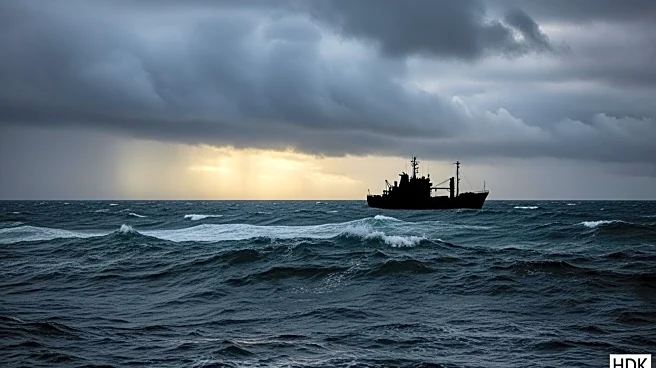What's Happening?
A humanitarian flotilla, including pro-Palestinian activists and climate campaigner Greta Thunberg, was set to deliver aid to Gaza but has been delayed due to stormy weather. The flotilla, consisting of 20 vessels, was forced to return to Barcelona, Spain, as adverse weather conditions prevented their departure. The organizers of the Global Samud flotilla face logistical and mechanical challenges, highlighting the difficulties in executing such humanitarian missions. Historical examples, such as the Persian Navy's loss of ships in 480 BC and Admiral Horatio Nelson's challenges in 1798, illustrate the impact of weather on naval operations.
Why It's Important?
The delay of the flotilla underscores the complexities involved in delivering humanitarian aid to conflict zones like Gaza. The involvement of high-profile activists such as Greta Thunberg brings attention to the humanitarian needs in the region, potentially influencing international discourse and policy. The disruption also highlights the vulnerability of humanitarian efforts to environmental factors, which can impede timely aid delivery. This situation may affect the perception of international aid effectiveness and the ability to respond to urgent humanitarian needs.
What's Next?
The flotilla organizers will likely reassess their plans and wait for improved weather conditions to attempt the journey again. The delay may prompt discussions among international stakeholders about alternative methods for delivering aid to Gaza. Activists and humanitarian organizations might increase pressure on governments to facilitate safe passage for aid deliveries. The situation could lead to diplomatic engagements aimed at ensuring the successful delivery of humanitarian assistance.
Beyond the Headlines
The involvement of activists like Greta Thunberg in humanitarian missions may inspire greater youth engagement in global issues, particularly those related to climate and humanitarian aid. The challenges faced by the flotilla could lead to innovations in how aid is delivered to conflict zones, potentially involving new technologies or strategies to overcome environmental obstacles.










